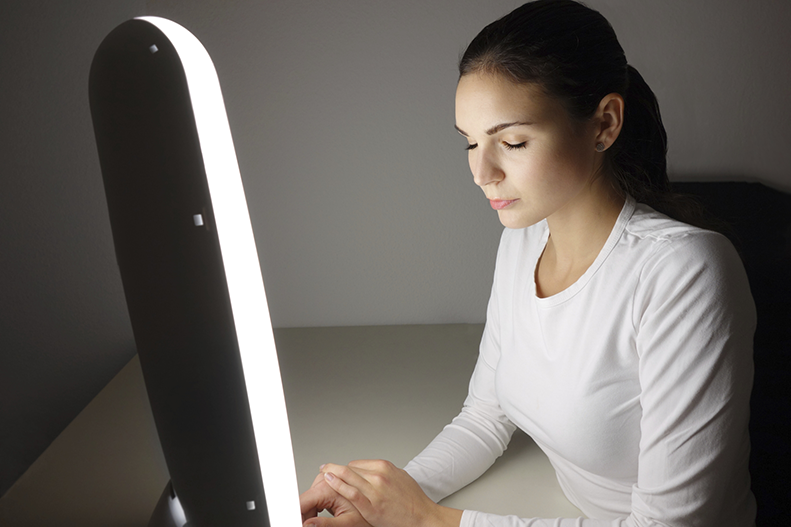Light therapy is an effective treatment for individuals who are experiencing symptoms of seasonal affective disorder (SAD). Promising indications for light therapy include treatment of non-seasonal depression, depression in pregnancy and sleep disorders stemming from dysregulated circadian rhythms.
“There are few effective treatments for bipolar depression. That’s why we’re exploring novel approaches such as light therapy,” says Dorothy Sit, MD, assistant professor of psychiatry at the University of Pittsburgh, and a researcher at Western Psychiatric Institute and Clinic of UPMC, who is leading an ongoing study in the use of light therapy for treatment of bipolar depression. According to research, people with bipolar depression are especially sensitive to changes in outdoor ambient light and the seasons, and may have suicidal thoughts.
The onset of fall and winter can trigger symptoms similar to seasonal affective disorder (SAD), including:
- Fatigue
- Sluggishness
- Daytime sleepiness
- Carb cravings
- Loss of interest
- Inability to experience pleasure
According to Dr. Sit, light therapy is affordable. Light therapy should not be started without the guidance of a physician. While receiving light therapy it is critical that the patient is monitored closely by their physician. “Patients typically start to feel better within two weeks and should gain the full antidepressant effect by six weeks.” Patients with seasonal depression, SAD, or non-seasonal depression need 45 to 60 minutes.
Never Miss a Beat!
Subscribe to Our HealthBeat Newsletter!
Thank you for subscribing!
You can now select the specific newsletters you'd like to receive.
You are already subscribed.
Subscribe to more newsletters in our email preference center.
Sorry, an error occurred. Please try again later.
Get Healthy Tips Sent to Your Phone!
Light Therapy Safety
While light therapy is generally safe, patients with bipolar depression also must be on a mood stabilizer or they’ll be at risk for manic episodes, says Dr. Sit. Other possible side effects include headaches, eyestrain, irritation, agitation, and insomnia. These symptoms normally disappear following adjustments in the time and length of treatment.
To participate in the study, call 1-800-436-2461. For information on light boxes, visit the Center for Environmental Therapeutics website.
About UPMC Western Behavioral Health
UPMC Western Psychiatric Hospital is the hub of UPMC Behavioral Health, a network of community-based programs providing specialized mental health and addiction care for children, adolescents, adults, and seniors. Our mission is to provide comprehensive, compassionate care to people of all ages with mental health conditions. UPMC Western Psychiatric Hospital is a nationally recognized leader in mental health clinical care, research, and education. It is one of the nation’s foremost university-based psychiatric care facilities through its integration with the Department of Psychiatry of the University of Pittsburgh School of Medicine. We are here to help at every stage of your care and recovery.
